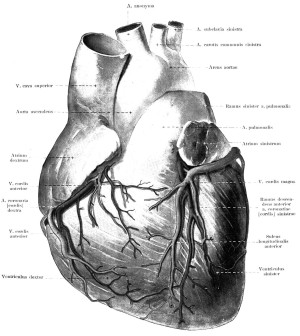- The Best Time of Day to Drink Bone Broth to Maximize Health Benefits
- 8 Ways to Increase Dopamine Naturally
- 7 Best Breads for Maintaining Stable Blood Sugar
- Gelatin vs. Collagen: Which is Best for Skin, Nails, and Joints?
- The Long-Term Effects of Daily Turmeric Supplements on Liver Health
- Could Your Grocery Store Meat Be Causing Recurring UTIs?
- Are You Making This Expensive Thermostat Error This Winter?
- Recognizing the Signs of Hypothyroidism
- 10 Strategies to Overcome Insomnia
- Could Artificial Sweeteners Be Aging the Brain Faster?
Blood Pressure Drugs Help Keep Heart Trouble at Bay: FDA


High blood pressure affects about one-third of American adults and raises their risk for heart attack, stroke, heart failure, kidney failure and death, but there are many medications available to lower blood pressure.
Exercise, weight loss and reduced salt intake can help some people lower their blood pressure, but most have to take medications to bring their blood pressure under control, according to the U.S. Food and Drug Administration.
In many cases, patients with high blood pressure require more than one medication to achieve their target blood pressure. Your doctor can determine if you need to be on medication and, if so, which drug(s) may be best for you.
There are a number of FDA-approved drugs to treat high blood pressure:
- Diuretics, or “water pills,” help the kidneys remove extra water and salt from your body and decrease blood volume.
- Angiotensin-converting enzyme (ACE) inhibitors and Angiotensin II receptor blockers (ARBs) lower blood pressure by relaxing blood vessels.
- Calcium channel blockers (CCBs) also relax blood vessels.
- Beta blockers cause the heart to beat with less force.
- Alpha blockers reduce nerve impulses that tighten blood vessels.
- Nervous system inhibitors control nerve impulses from the brain to relax blood vessels.
If you are put on blood pressure medications, take them as prescribed and don’t stop taking them unless told to do so by a doctor. Tell your doctor about any side effects you’re experiencing. Some may disappear over time and others can be prevented by adjusting dosage or switching to a different medication, the FDA said.
It’s also a good idea to get regular blood pressure checks. You can have your doctor do this or buy a home blood pressure monitor. There are many to choose from, and your doctor or pharmacist can help you select the right device.
Another option is to use blood pressure-monitoring devices that are provided in many drug stores.
More information
The U.S. National Heart, Lung, and Blood Institute has more about high blood pressure treatment.
Source: HealthDay
Copyright © 2026 HealthDay. All rights reserved.










